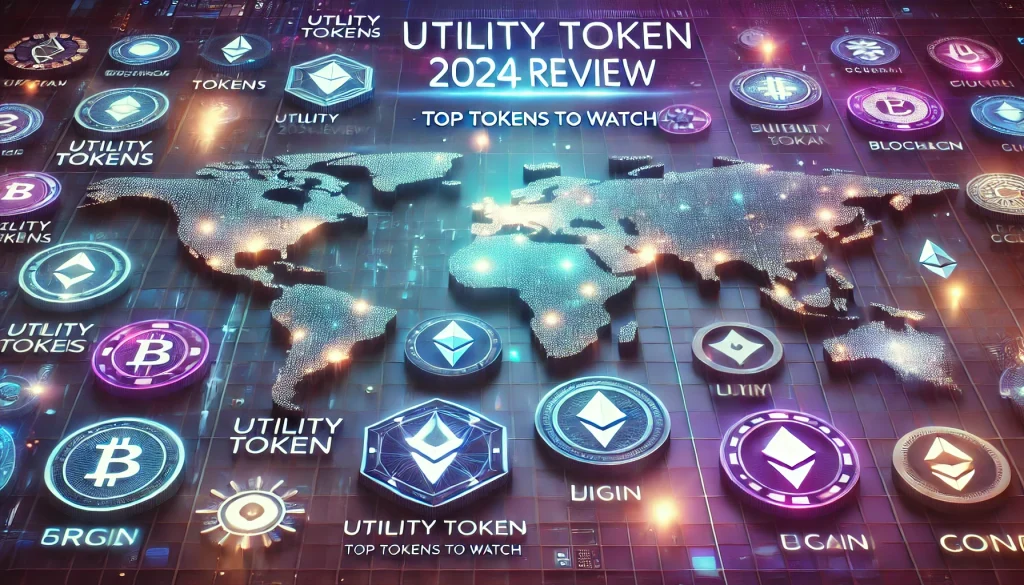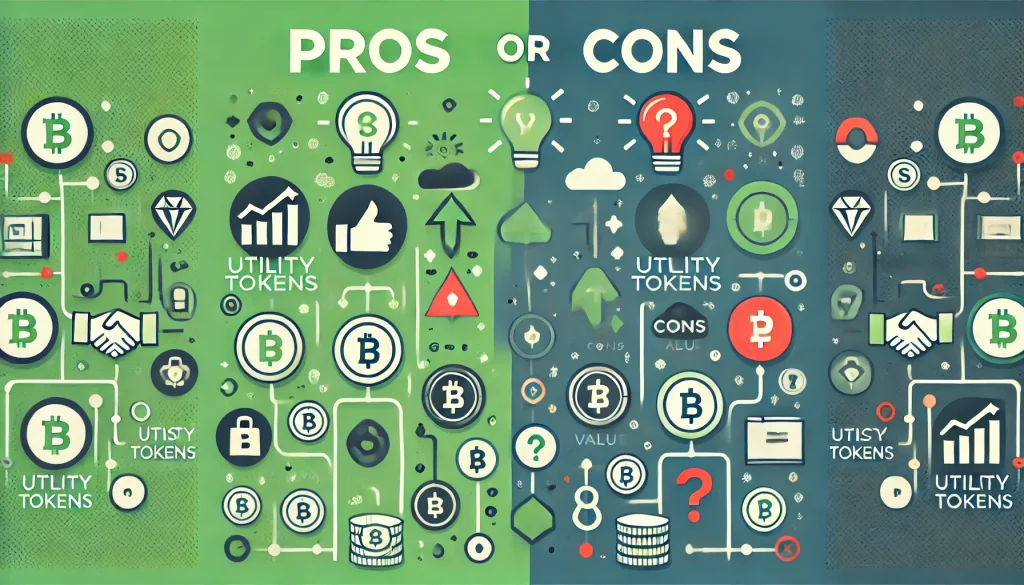Introduction

As the cryptocurrency landscape continues to evolve, utility tokens have emerged as an important component within the blockchain ecosystem, providing access to specific services and features. As 2024 is expected to see significant developments in this space, it is essential to evaluate the leading utility tokens that are shaping the digital economy. In this review, we focus on the best utility tokens of 2024, highlighting their features, benefits, and potential drawbacks to help you make informed decisions in the ever-changing world of cryptocurrency.
Overview
A utility token is a type of cryptocurrency designed to provide users with access to a specific product or service within a blockchain-based ecosystem. Unlike security tokens, which represent ownership of an asset, utility tokens are intended to be used within the framework of a specific project. In 2024, several utility tokens are gaining traction for their unique use cases and potential to impact various sectors. These tokens not only facilitate transactions, but also play an important role in governance, incentivizing users, and more. Understanding the key characteristics of these tokens will give you a better idea of their value in the market.
Pros and cons

Pros
- Access to exclusive services: Utility tokens grant holders access to specialized services or products within the blockchain ecosystem. This can include anything from voting rights in governance to discounts on transaction fees.
- Growth potential: As the platform underlying the utility token grows, the value of the utility token can increase, providing a potential financial return.
- Versatileapplications: Utility tokens aren’t limited to a single use case – they can be used for staking, voting, accessing premium features, and more, making them a versatile asset in the crypto space.
Cons
- Volatility: Like all cryptocurrencies, utility tokens can be volatile, with prices fluctuating rapidly based on market conditions.
- Regulatory risk: The classification of utility tokens is still a gray area in many jurisdictions, which can lead to unexpected regulatory issues.
- Dependency on platform success: The value and utility of utility tokens is highly dependent on the success of the underlying platform. If the project fails, the value of the utility token can be completely wiped out.
Deep dive analytics

Design
Utility tokens are built to integrate seamlessly within their respective blockchain ecosystems. Whether used for staking, voting, or accessing premium services, utility tokens are designed with a specific function in mind. These designs often include mechanisms to incentivize holding and use within the ecosystem, such as staking rewards or fee discounts.
Features
The core functionality of utility tokens lies in their ability to grant users access to services within a blockchain project. For example, a token like BNB (Binance Coin) allows users to pay transaction fees at a discounted rate within the Binance ecosystem. Similarly, tokens like ETH (Ethereum) are used to power decentralized applications (dApps) and smart contracts. The utility of these tokens is what drives their demand and ultimately the value of the token.
Performance
In terms of market performance, utility tokens have seen significant growth, especially those associated with successful blockchain projects. For example, Ethereum’s ETH has steadily increased in value as the platform continues to dominate the smart contract space. The performance of utility tokens is often tied to the adoption and success of the underlying project, making them a good indicator of the health of the platform and its potential growth.
Compare
When comparing utility tokens, it’s important to consider the ecosystem in which they operate. For example, BNB operates within the Binance ecosystem and offers users discounted fees and access to premium services. Ethereum, on the other hand, is an integral part of the Ethereum network, powering dApps and smart contracts. While both tokens provide utility, their use cases are vastly different, emphasizing the importance of understanding the specific ecosystem a token is associated with.
| Token | Key use cases | Ecosystem |
|---|---|---|
| BNB | Transaction fees, staking | Binance |
| ETH | Smart contracts, dApps | Ethereum |
| LINK | Oracle Services | Chainlink |
Conclusion
In 2024, utility tokens will continue to play an important role in the crypto industry, offering unique features and potential growth opportunities. Whether you’re looking for a token that can provide access to a specific service, offer voting rights, or reduce transaction fees, utility tokens can be a useful addition to any crypto portfolio. However, it’s important to consider the risks associated with volatility and regulatory issues before investing. Overall, utility tokens are a promising vehicle for those looking to get deeply involved in blockchain projects.
Evaluation
4/5 – Utility tokens offer significant benefits within an ecosystem, but carry risks such as volatility and regulatory uncertainty. The value of utility tokens is highly dependent on the success of the underlying platform.
FAQ
What is a utility token?
Utility tokens are cryptocurrencies that provide access to specific services within a blockchain ecosystem.
How are utility tokens different from security tokens?
Security tokens represent ownership of an asset, while utility tokens grant access to a service.
What are the top utility tokens in 2024?
The top utility tokens in 2024 are BNB, ETH, and LINK.
See also
- Lykke. (2024, August 1). Top 7 utility tokens in 2024. Lykke. https://www.lykke.com/blog/top-7-utility-tokens-2024
- Coinfomania. (2024, August 5). 5 best utility tokens in digital space/cryptocurrencies for 2024. Coinfomania. https://coinfomania.com/5-best-utility-tokens-in-digital-spacecryptocurrencies-for-2024/
- Techopedia. (2024). Best utility tokens of 2024. Techopedia. https://www.techopedia.com/cryptocurrency/best-utility-tokens
- Blockchain Council. (2023, September 15). Security tokens vs. utility tokens: A guide. Blockchain Council. https://www.blockchain-council.org/blockchain/security-tokens-vs-utility-tokens-guide/
- BullPerks. (2022, December 1). What are utility tokens and why should you care? LinkedIn. Retrieved from https://www.linkedin.com/pulse/what-utility-tokens-why-should-you-care-bullperks/
